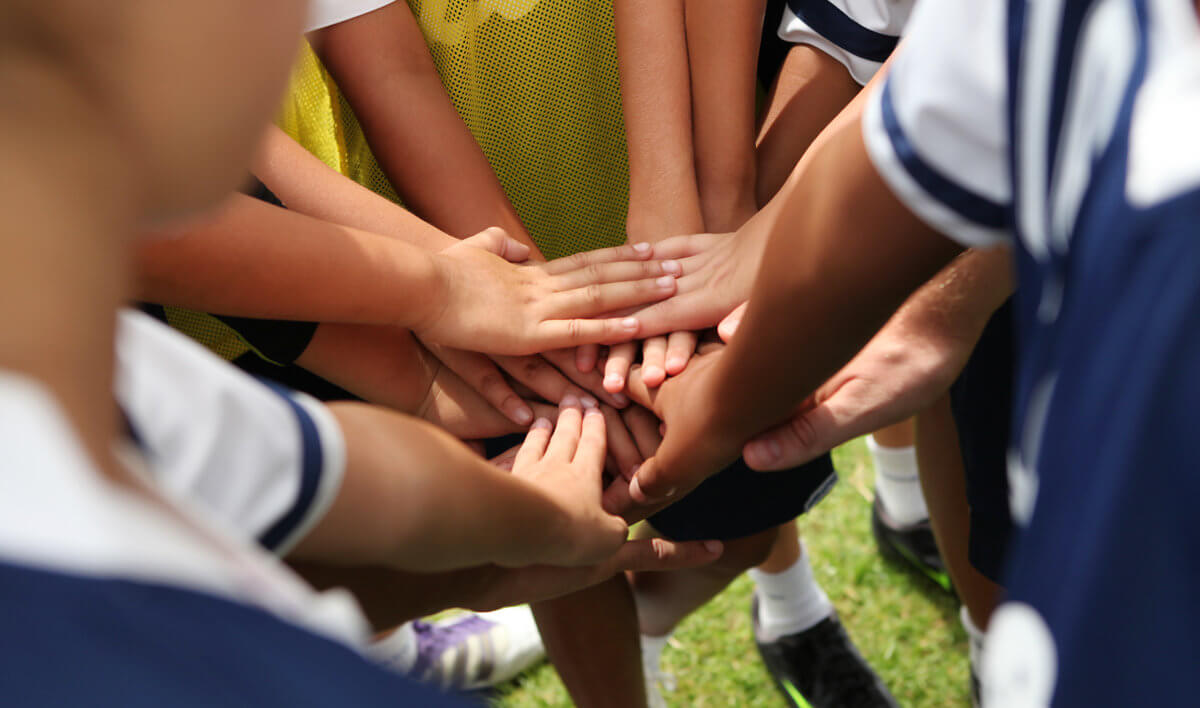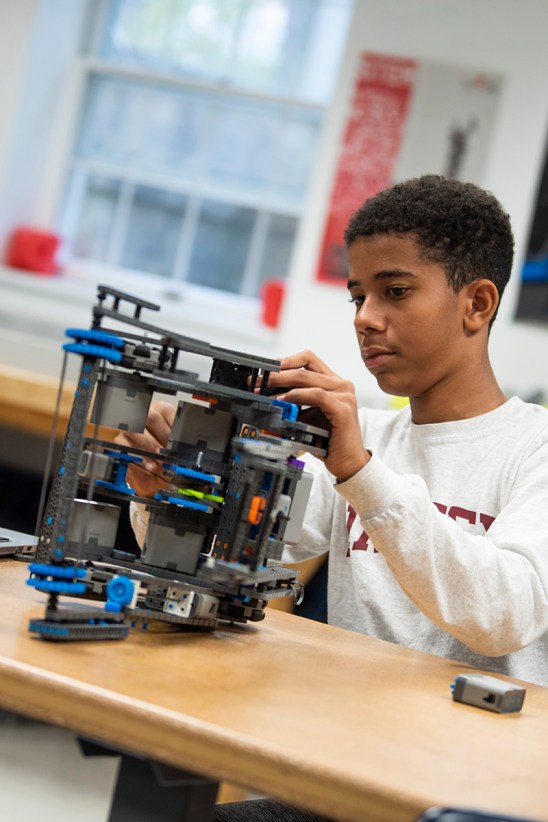
No matter how much stress I was dealing with at work or in other aspects of my life, I have always felt at ease when I had the opportunity to watch my kids play sports. Seeing my children’s smiles of success and even their frowns from failure not only made me feel connected to them but also took me back to memories of my own childhood. It would be disingenuous to suggest that the primary reason I loved seeing my kids play youth sports was because of the life lessons it can teach. I simply just enjoyed watching them compete. However, youth sports absolutely can offer valuable life skills and teachable moments for kids and that should never be discounted as a reason for having your child be part of a team. Sadly, COVID- 19 has dramatically changed the landscape of youth sports programming this spring with tremendous uncertainty as to when kids will be able to compete with each other once again. That is deeply frustrating on so many levels, making it easy to dismiss some and maybe even all of 2020 as a total loss for your child’s athletic progress no matter how you define that development But it doesn’t have to be. In fact, this period of time could prove to be the greatest opportunity your budding athlete will ever have from a sports development perspective, both mentally and physically.
Team Over Self – Anyone who has ever played a sport has heard a coach preach the virtues of playing and acting like a team. At the core of the message, individual goals, accomplishments, and needs have to be secondary to what is in the best interest of the team. It is one of the most seemingly easy concepts to understand but so difficult to see actually put into practice. But if you take the time to really explain to your kids what this social distancing is all about, he or she might never again forget what it means to be a great teammate. Making them realize that even though they feel fine, their individual sacrifice of not playing and being around others can truly be saving lives. If a player doesn’t grasp the concept of the team over self after this, they probably never will.
Find A Way To Make a Contribution – It’s not always easy figuring out how you can help your team win, especially when your own performance might be suffering a bit on a given day. The contributions aren’t always obvious but they can be as subtle and helpful as cheering for your teammates, being willing to switch a position or just asking the coach if they need a hand with anything. That’s what our kids are seeing take place right now. Make sure your kids know about the facilities that are being used as temporary field hospitals. Tell them about the companies who are switching their manufacturing capabilities to making ventilators and point out how many individuals are sewing masks for places in need. Next time your child is in a game and the coach says to try to find a way to help your team win, memories of what is happening in our world right now just might make those words resonate.
The Human Body Needs A Rest – Injuries in young athletes are way too common and unfortunately many are a result of unrelenting wear and tear on the body. If you happen to have a child that plays one particular sport all year round, this break from the game could be the rest his or her body was craving. While your kid may have been injury-free going into the season, the extended offseason just might have helped avoid an injury that was inevitably coming because of muscle overuse or repetition.
Don’t Take Yourself or The Game Too Seriously – Being the best you can possibly be and not taking yourself or the game too seriously are not mutually exclusive goals. Maximum effort to win while learning to be okay with yourself and your team if you come up short is a true testament to loving the game you play. When COVID- 19 has run its course, many kids may truly understand what you mean when you say it’s not the end of the world if your team doesn’t win, you strike out, miss a free throw or drop a pass. We have a unique opportunity to make kids really understand the word perspective.
Have Other Interests Besides Sports – Want your child to be a better athlete? Make sure they have other interests in life besides sports to occupy their mental space. If you have had a difficult time finding something to get your child’s interest besides his or her favorite sport to play, this is the perfect opportunity to experiment with other activities. Whether it’s art, music, reading, building models, doing puzzles or just watching a movie, your child will benefit from having new and additional interests.
Understand The Difference Between Being a Star Athlete and Being a Hero – Looking up to a favorite player for how well they play the game is fine but the word hero, unfortunately, gets carelessly inserted into the conversation too often. This can be counterproductive for an athlete’s mental development, measuring their self worth and importance to the world by how well they play the game. They need to play the game for the sake of the game and figure out other ways in life to be heroes to others. Take the time to let your child know about the grocery store workers who helped put food on your table and the healthcare workers who have tirelessly been working around the clock to save lives. The sooner they know that being great at a sport doesn’t make you a hero, but helping another human being does, the easier it will be for them to compete in games knowing that regardless of their success or failure, they aren’t impacting a life.
Learn to Control Your Emotions – Sometimes emotions wind up getting the best of kids during competition and that ultimately hurts their performance. Too much excitement by a great play or excessive dejection because of a mistake can make it difficult to truly be the best that you can be. Fear, eagerness, anger, and elation are all okay to experience in sports as long as they can be managed and limited accordingly. It is important that your kids see this crisis as one big competition between humanity and an insidious virus. The only way we come out on the winning end is to stay the course with a well thought out strategy and plan that undoubtedly elicits strong emotions for everyone. And while it’s okay for all of us to feel these emotions, our behavior can’t be driven by them.
Learn To Embrace Adversity, Not Be Defeated By It – How has your child responded to challenges or failures in competition before? Have they been quick to give up in-game when getting blown out? Do they get down on themselves for the rest of the day or week after experiencing failure or have they even quit a sport because they weren’t experiencing success? As it has been said by others, “Adversity doesn’t build character, it reveals it.” Most kids in our country are hopefully experiencing the most adverse circumstances that they will ever have to face in a lifetime. Kids will go into slumps no matter what sport they play and teams will ultimately struggle no matter how good they may have been. Our team, the human race, is facing a struggle not seen in almost anyone’s lifetime and like a performance slump in sports, no one can say for sure when it will end. But we are collectively fighting through it, doing the things we can to be as productive as possible. Ultimately, those efforts will help us prevail and make us all a stronger team. This is the perfect time to show your kids how to work through a challenge one day at a time.













